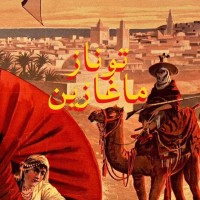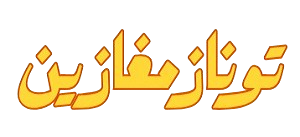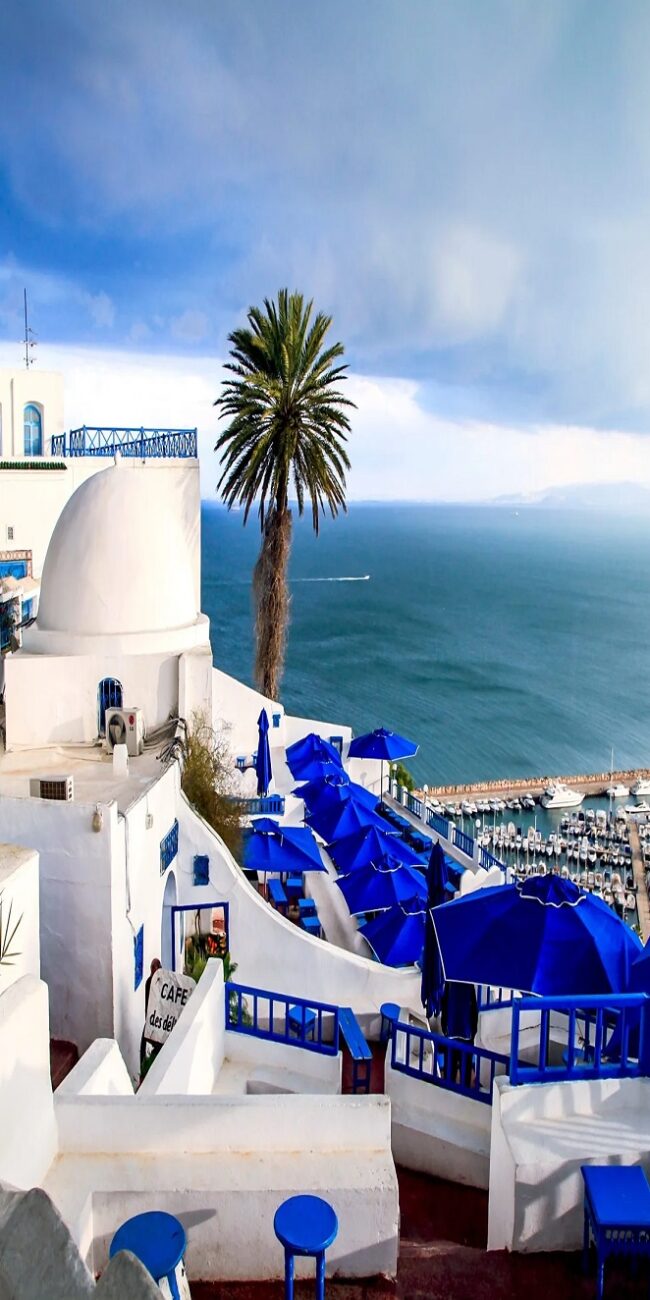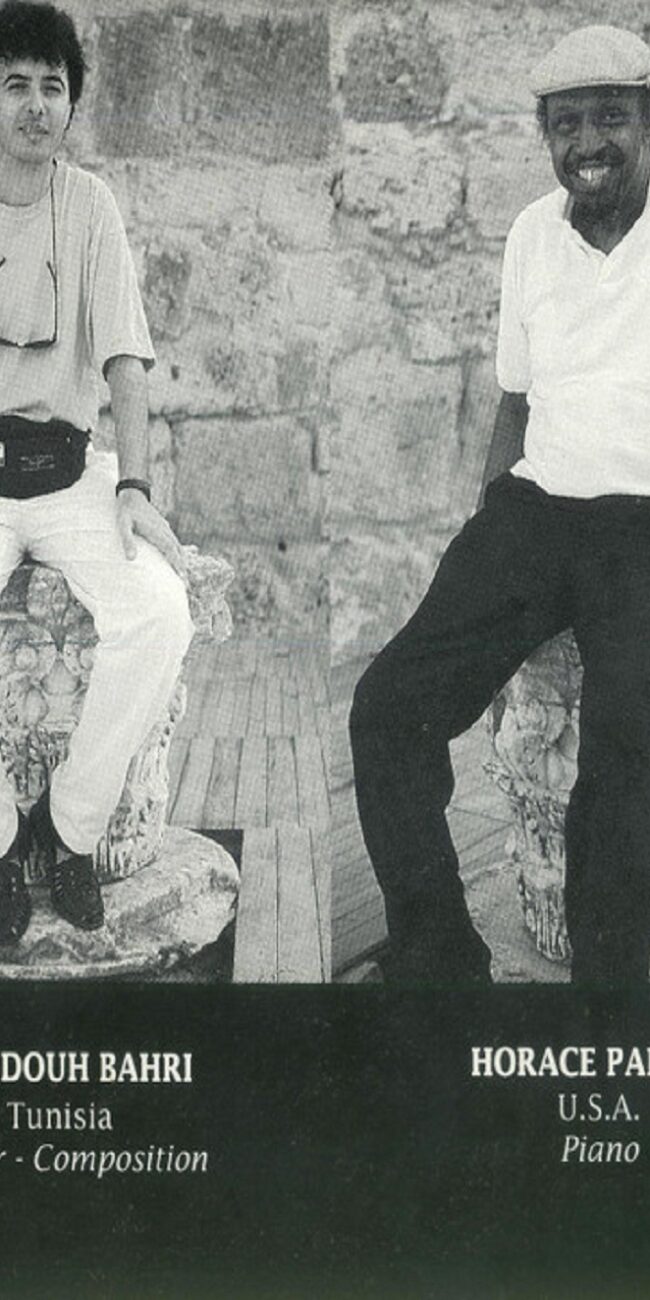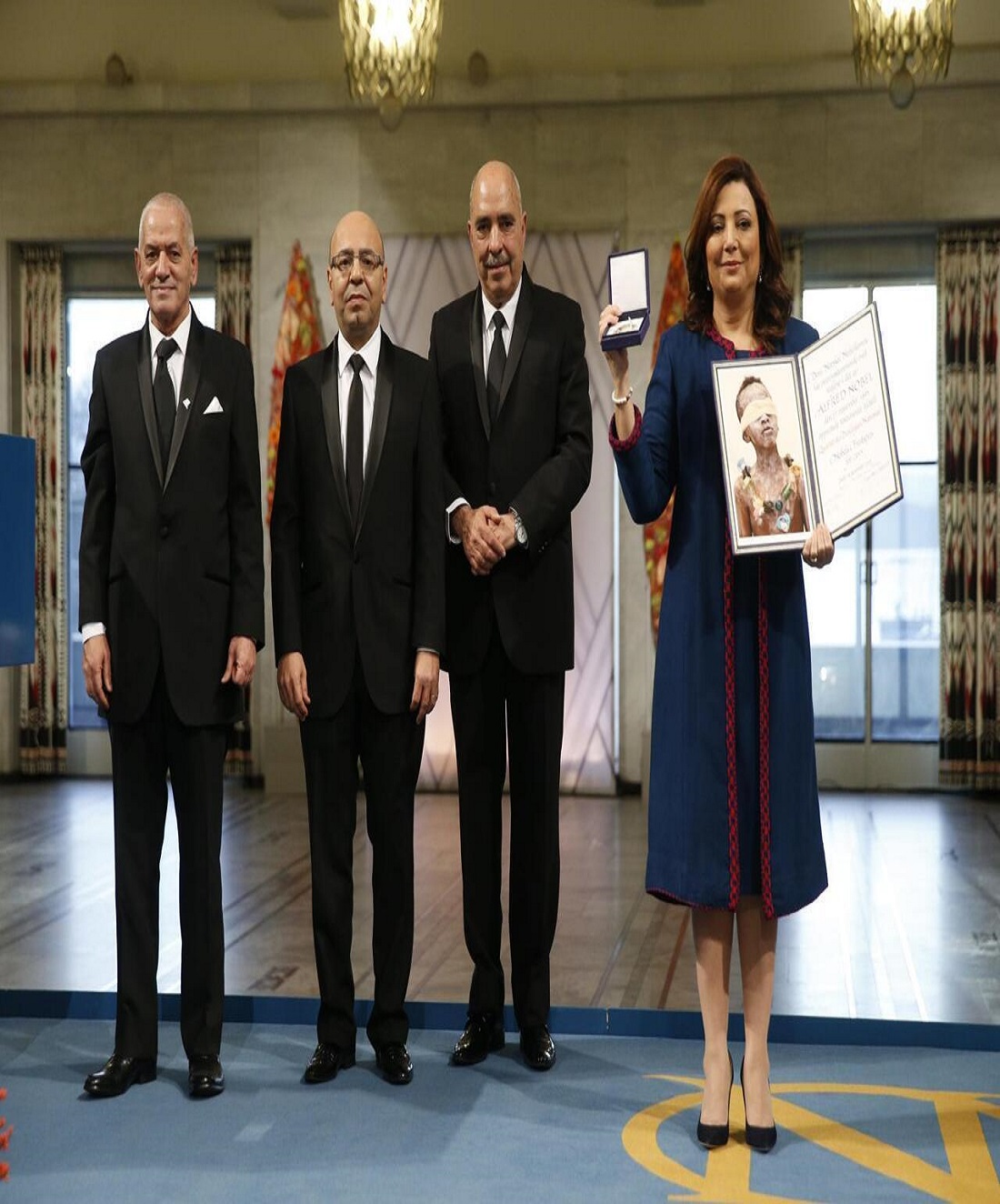
The Tunisian National Dialogue Quartet
The Tunisian National Dialogue Quartet is a coalition of four key civil society organizations that played a central role in steering Tunisia through its political crisis during the country’s democratic transition following the 2011 revolution. The Quartet, composed of the Tunisian General Labour Union (UGTT), the Tunisian Confederation of Industry, Trade and Handicrafts (UTICA), the Tunisian Human Rights League (LTDH), and the Tunisian Order of Lawyers, was formed in 2013 to mediate dialogue between the country’s divided political forces. Their collective effort culminated in Tunisia’s avoidance of civil conflict and the adoption of a new constitution in 2014, earning the group the 2015 Nobel Peace Prize.
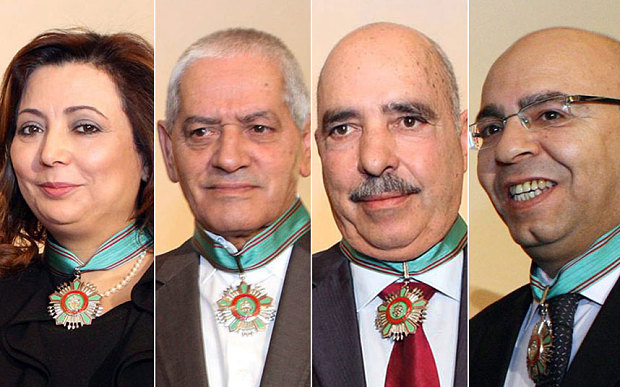
Background
After the Jasmine Revolution of 2011, which ended the 23-year rule of President Zine El Abidine Ben Ali, Tunisia embarked on a democratic transition. The country’s first free elections brought to power the Ennahda Movement, an Islamist party that led a coalition government. However, by 2013, political tensions had escalated amid disputes over the drafting of a new constitution, economic hardship, and the assassinations of secular politicians Chokri Belaïd and Mohamed Brahmi. The situation risked plunging the nation into chaos, similar to the outcomes of other Arab Spring movements in the region.
Civil society in Tunisia, deeply rooted in decades of activism and organization, took the initiative to prevent the democratic process from collapsing. The UGTT, historically one of Tunisia’s most powerful labor unions, spearheaded efforts to bring opposing political factions to the negotiating table. Together with UTICA, representing the country’s business sector, the LTDH, representing human rights advocacy, and the Tunisian Order of Lawyers, the Quartet was formally established in the summer of 2013.
Formation and Composition
Each member of the Quartet represented a distinct sector of Tunisian society:
UGTT (Union Générale Tunisienne du Travail): Founded in 1946, the union has long been central to social and political life in Tunisia, combining labor activism with national and political advocacy.
UTICA (Union Tunisienne de l’Industrie, du Commerce et de l’Artisanat): Established in 1947, UTICA represents Tunisia’s private sector, promoting economic interests and modernization.
LTDH (Ligue Tunisienne des Droits de l’Homme): Created in 1976, it was the first human rights organization in the Arab world, advocating civil liberties and monitoring government practices.
Tunisian Order of Lawyers: Serving as the professional body for legal practitioners in Tunisia, it has often played a role in defending judicial independence and promoting rule of law.
Together, these organizations formed a cross-sectional representation of Tunisian society, labor, business, human rights, and law, allowing them to act as credible intermediaries above partisan politics.
The National Dialogue Process
The Quartet launched what became known as the National Dialogue, a series of negotiations aimed at resolving the political crisis. On 17 September 2013, it presented a Roadmap to Tunisia’s political parties. The roadmap outlined key steps:
- The establishment of a neutral technocratic administration.
- The finalization of the new constitution.
- A timeline for parliamentary and presidential elections.
After intense deliberations and resistance from several factions, the political class eventually accepted the Quartet’s mediation. The dialogue sessions began in October 2013, and by January 2014, Tunisia had adopted a new constitution praised internationally for its progressive stance on rights, equality, and separation of powers.
Achievements and Outcomes
The Quartet’s intervention is widely credited with saving Tunisia’s democratic transition. Key outcomes include:
Adoption of the 2014 Constitution: A landmark document guaranteeing freedom of expression, gender equality, and separation of religion and state.
Formation of a Technocratic Government: Led by Mehdi Jomaa, this government maintained neutrality until elections could be held.
Successful 2014 Elections: Free and transparent elections restored legitimacy to Tunisia’s institutions.
International Recognition: The Quartet was awarded the Nobel Peace Prize in 2015, with the Norwegian Nobel Committee commending its decisive contribution to the building of a pluralistic democracy.
The Quartet’s work stands as a rare example of successful conflict mediation led entirely by domestic civil society actors, contrasting with international interventions seen elsewhere.
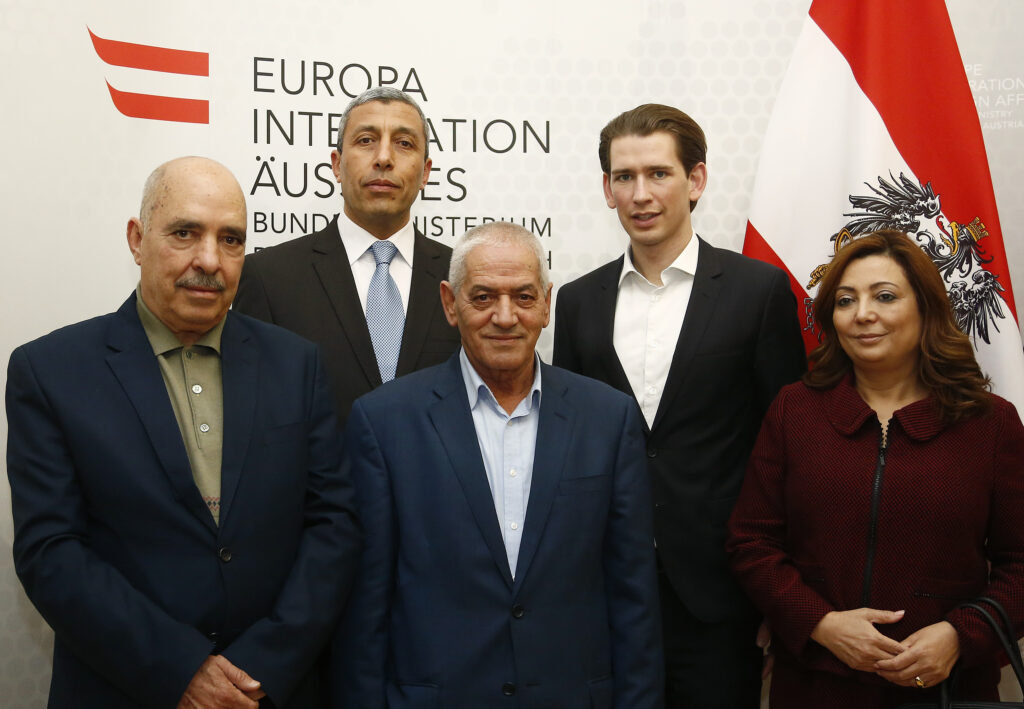
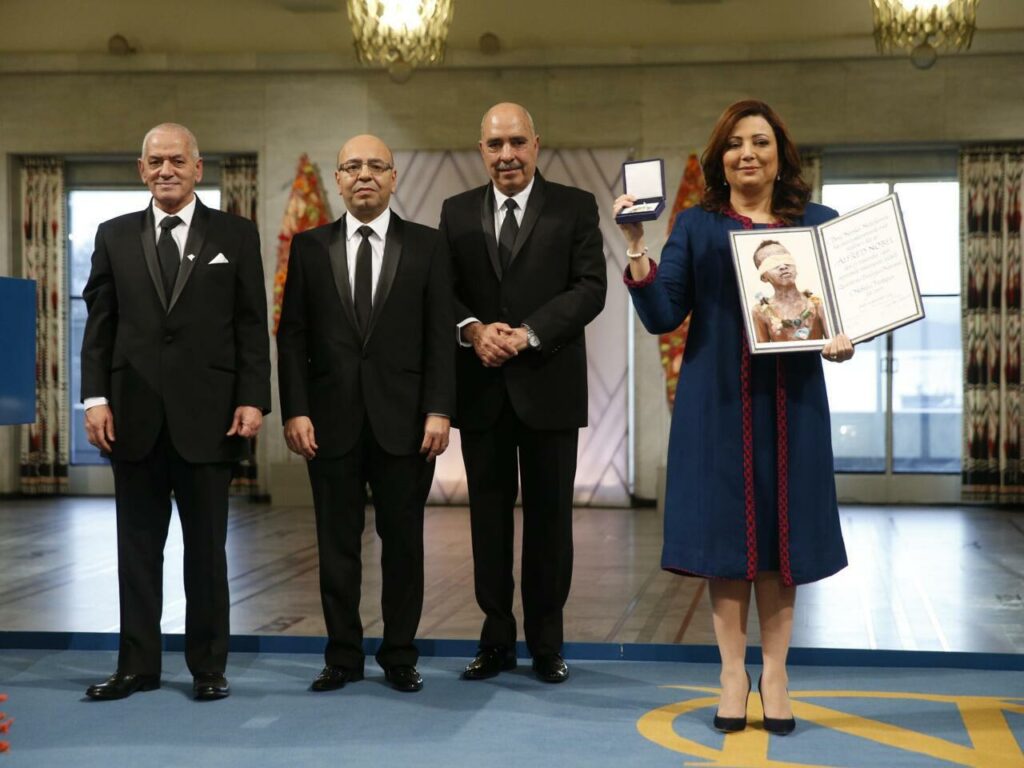
Nobel Peace Prize
On October 9, 2015, the Nobel Committee awarded the Nobel Peace Prize to the Quartet for its decisive contribution to the building of a pluralistic democracy in Tunisia in the wake of the Jasmine Revolution. The award recognized not only the Quartet’s achievement in overcoming political polarization but also Tunisia’s unique position as the sole success story of the Arab Spring in establishing a lasting democratic framework.
The Quartet’s representatives, Houcine Abassi (UGTT), Wided Bouchamaoui (UTICA), Abdessattar Ben Moussa (LTDH), and Mohamed Fadhel Mahfoudh (Order of Lawyers), received the prize collectively in Oslo, highlighting Tunisia’s civil society as a model for dialogue and nonviolent conflict resolution.
Legacy and Impact
The Quartet’s success has since been studied globally as a model of democratic mediation and civil society engagement. Scholars point to several factors behind its effectiveness:
The historical strength and independence of Tunisian civil institutions.
A relatively educated population with a tradition of moderation and secular governance.
The absence of a politically dominant military.
Broad social trust in the Quartet’s impartiality.
Despite these achievements, Tunisia continues to face challenges. Economic stagnation, political fragmentation, and public disillusionment with elites have tested the durability of its democratic experiment. Nonetheless, the Quartet’s achievement remains a benchmark for peaceful political transition.
Challenges and Criticisms
Critics have noted that the Quartet’s mediation was largely elite driven, involving negotiations among political and institutional leaders rather than broad public participation. Others argue that while the Quartet helped avert immediate crisis, it did not resolve deeper structural problems such as youth unemployment and regional inequality. Since 2021, Tunisia has witnessed renewed concerns over democratic backsliding, suggesting that the dialogue’s spirit must be continually revived.
International Influence
The Tunisian model has inspired civil society movements in other regions facing political polarization. The Quartet has been referenced in United Nations reports, European Union democracy initiatives, and comparative peace studies as a successful model of locally led conflict resolution. Its emphasis on inclusivity, transparency, and shared responsibility provides a blueprint for societies seeking to reconcile divided political landscapes without resorting to violence.
